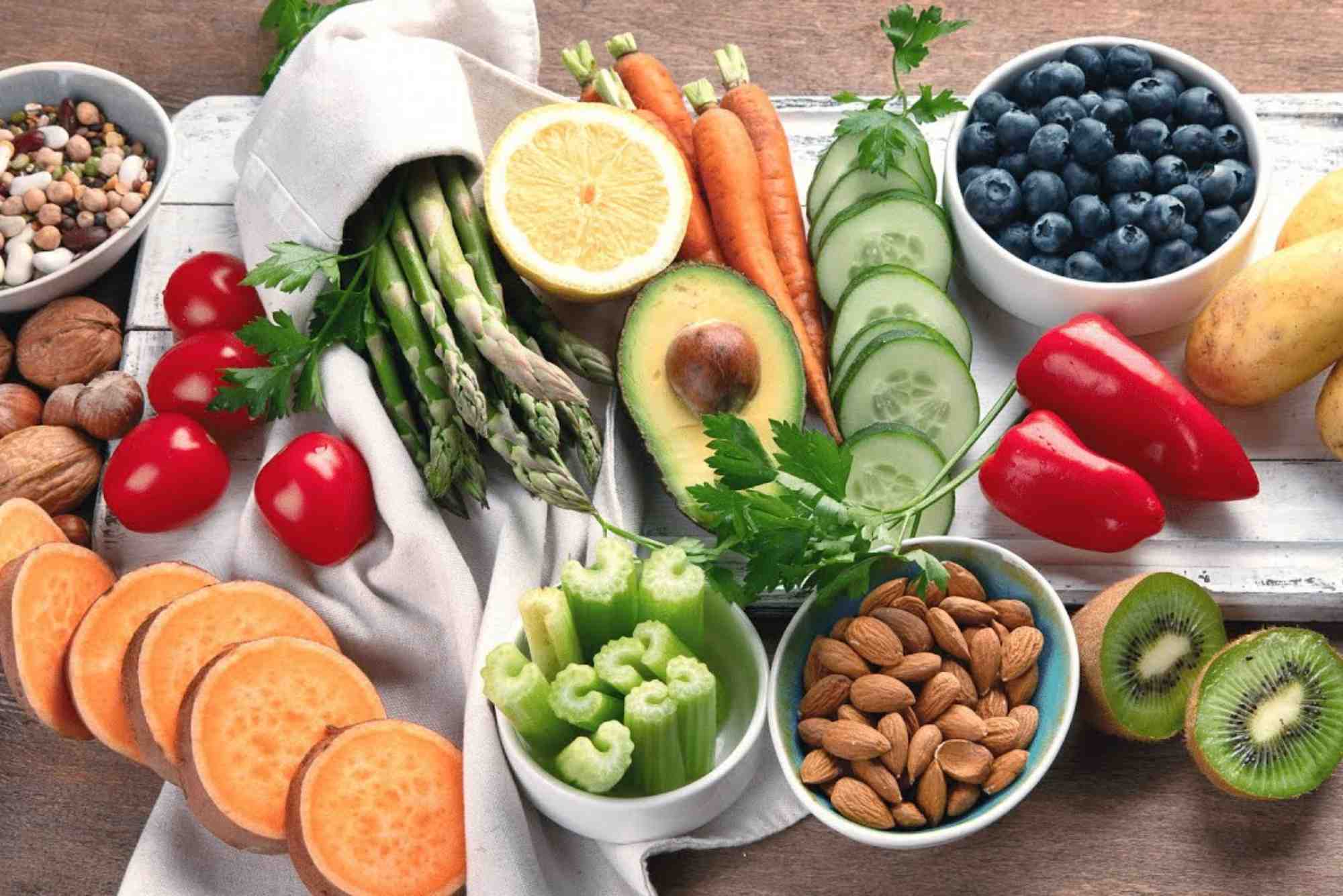Maintaining healthy adrenal glands is essential for balanced hormones, steady energy, and overall wellness. These small glands, located above your kidneys, are responsible for producing hormones like cortisol, adrenaline, and aldosterone. When they’re under stress or fatigued, your body can feel the effects in many ways—think low energy, poor sleep, anxiety, and hormonal imbalances.
A crucial yet often overlooked way to support adrenal function is through diet. The foods you eat can either nourish your adrenal glands or exhaust them further. In this guide, we’ll explore the top foods good for adrenals, how they work, and how to include them in your daily meals to improve hormonal health.
Why Adrenal Health Matters
Your adrenal glands are part of the endocrine system. They respond to stress, regulate your metabolism, and help control blood pressure and immune function. When functioning properly, they release hormones in harmony with your body’s needs. However, chronic stress, poor nutrition, or lifestyle habits can lead to adrenal fatigue.
Common Symptoms of Adrenal Imbalance
- Fatigue, especially mid-morning or afternoon
- Cravings for salty or sugary foods
- Difficulty sleeping or waking up
- Mood swings or anxiety
- Brain fog or poor concentration
If you experience these symptoms, supporting your adrenals through targeted nutrition can help rebalance your system naturally.
How Diet Affects Adrenal Glands
Your adrenal glands need a steady supply of vitamins, minerals, and healthy fats to function properly. Nutrients like vitamin C, B vitamins (especially B5 and B6), magnesium, and adaptogens play key roles in stress regulation and hormone production.
Choosing foods good for adrenals provides the body with what it needs to rebuild resilience and maintain steady energy throughout the day.
Best Nutrients for Adrenal and Hormonal Support
Vitamin C
Your adrenal glands contain one of the highest concentrations of vitamin C in the body. This antioxidant supports cortisol production and reduces oxidative stress caused by chronic inflammation.
B Vitamins
Especially B5 (pantothenic acid) and B6, B vitamins help convert food into energy and support the production of adrenal hormones. A deficiency can impair your stress response.
Magnesium
Magnesium calms the nervous system and supports adrenal function. It’s often depleted during times of stress, making regular intake essential.
Omega-3 Fatty Acids
Healthy fats, especially omega-3s, reduce inflammation and support the production of steroid hormones.
Adaptogenic Compounds
While not nutrients in the classic sense, adaptogens like those found in certain herbs and mushrooms help the body adapt to stress and balance cortisol.
Top Foods Good for Adrenals and Hormones
Fatty Fish
Salmon, sardines, and mackerel are rich in omega-3s and protein. They help reduce inflammation and support hormone production.
Leafy Greens
Spinach, kale, and Swiss chard are loaded with magnesium, folate, and vitamin C—ideal for adrenal function.
Eggs
Eggs offer complete protein and vital nutrients like choline, B vitamins, and vitamin D. They help maintain hormone balance and stable energy.
Avocados
Packed with healthy fats, fiber, and potassium, avocados help regulate blood pressure and support adrenal health.
Sweet Potatoes
These are a slow-burning carbohydrate that provides energy without spiking blood sugar. Their high vitamin B6 and potassium content makes them ideal for adrenal support.
Berries
Berries are rich in antioxidants and vitamin C, protecting the adrenal glands from oxidative stress.
Nuts and Seeds
Almonds, sunflower seeds, and pumpkin seeds offer magnesium, zinc, and healthy fats—all crucial for hormone production and adrenal repair.
Fermented Foods
Gut health is closely linked to hormone regulation. Foods like kimchi, sauerkraut, and kefir support digestion and nutrient absorption.
Lifestyle Tips to Support Adrenal Health with Nutrition
Eat Regularly and Mindfully
Skipping meals can spike cortisol levels. Eating every 3–4 hours with balanced macronutrients helps maintain energy and stabilize blood sugar.
Reduce Sugar and Caffeine
Excess sugar and stimulants overwork the adrenals. Gradually reduce intake and replace with nutrient-dense alternatives like herbal teas or fruit.
Stay Hydrated with Electrolytes
Your adrenal glands regulate sodium and potassium. Staying hydrated with mineral-rich fluids like coconut water supports this balance.
Sample Daily Meal Plan for Adrenal Health
Breakfast: Scrambled eggs with spinach and avocado
Snack: Handful of almonds and a small banana
Lunch: Grilled salmon with quinoa and steamed broccoli
Snack: Greek yogurt with mixed berries
Dinner: Sweet potato with roasted chicken and sautéed kale
Drink: Herbal tea with magnesium or adaptogens like ashwagandha
This balanced approach ensures you’re regularly fueling your body with foods good for adrenals and hormones.
Frequently Asked Questions
What are the best foods for adrenal fatigue?
The best foods for adrenal fatigue are rich in vitamin C, B vitamins, and magnesium. This includes leafy greens, berries, fatty fish, and complex carbs like sweet potatoes.
How do I heal my adrenal glands naturally?
Healing your adrenals naturally involves reducing stress, sleeping well, and eating nutrient-rich foods that support hormone balance. Avoid processed foods and stimulants.
What foods to avoid for adrenal health?
Avoid refined sugar, caffeine, alcohol, and highly processed snacks. These deplete vital nutrients and overstimulate the adrenal response.
Can adrenal fatigue cause hormonal imbalance?
Yes, adrenal fatigue disrupts cortisol and DHEA levels, which can affect estrogen, progesterone, and testosterone balance—leading to various hormonal symptoms.
How long does it take to recover from adrenal fatigue?
Recovery varies but often takes a few months of consistent lifestyle and dietary changes. Severe cases may take longer. Patience and consistency are key.
Start Nourishing Your Adrenals Today
Your adrenal glands play a vital role in your energy levels, stress resilience, and hormonal health. By choosing foods good for adrenals, you support your body’s ability to adapt to stress, produce hormones efficiently, and maintain balance.





